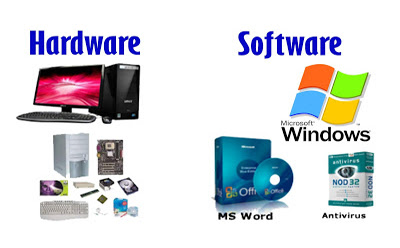What is motherboard
The motherboard is a part of computer hardware that can be considered as the "backbone" of a PC, or more suitable as "mother" which keeps all the parts together.
Phones, tablets and other small devices also have motherboards, but they are often called logic boards.
IBM personal computer, which was released in 1981, is considered to be the first computer motherboard (at that time it was called "Planner").
Elements of Motherboard
All parts of the computer are attached to the motherboard in some way on the computer case so that they can communicate with each other.
This includes video card, sound card, hard drive, optical drive, CPU, RAM chip, USB port, power supply etc.
The motherboard also has expansion slots, jumper, capacitors, device power and data connection, fan, heat sink and holes for screws.
Important Motherboard Facts
Motherboards are quite different in relation to their components which they support. For example, each motherboard supports a special type of CPU and memory. In addition, it may also be that they do not support some video cards, hard drives and other external devices.
Today laptops and tablets also include Motherboard - Video Card and Sound Card functions as well as in the desktop.
Devices connected to a motherboard often require device drivers installed manually to work with the operating system.
Phones, tablets and other small devices also have motherboards, but they are often called logic boards.
IBM personal computer, which was released in 1981, is considered to be the first computer motherboard (at that time it was called "Planner").
Elements of Motherboard
All parts of the computer are attached to the motherboard in some way on the computer case so that they can communicate with each other.
This includes video card, sound card, hard drive, optical drive, CPU, RAM chip, USB port, power supply etc.
The motherboard also has expansion slots, jumper, capacitors, device power and data connection, fan, heat sink and holes for screws.
Important Motherboard Facts
Motherboards are quite different in relation to their components which they support. For example, each motherboard supports a special type of CPU and memory. In addition, it may also be that they do not support some video cards, hard drives and other external devices.
Today laptops and tablets also include Motherboard - Video Card and Sound Card functions as well as in the desktop.
Devices connected to a motherboard often require device drivers installed manually to work with the operating system.






Comments